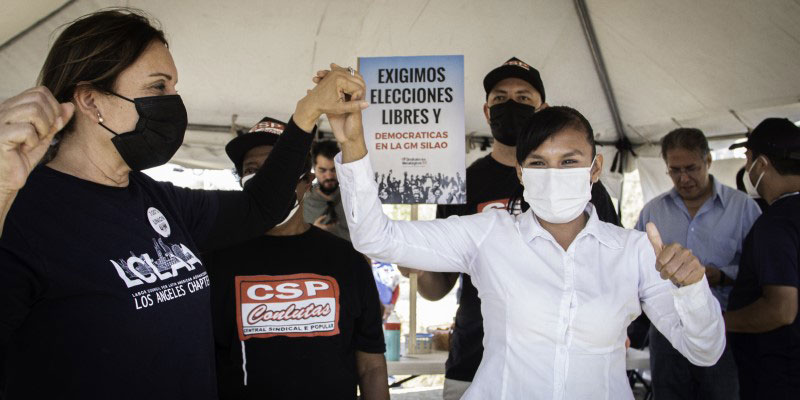
When workers understand their rights and can freely and collectively bargain for such rights, they will advocate for increased wages, equal treatment, and improved conditions of work. Transparency and accountability are at the heart of ensuring that workers in Mexico can freely choose a union and bargain for better wages and working conditions. The public – but most importantly workers themselves – must understand how the process of electing a union and its leadership functions, and they must have confidence that it actually works. The business of unions in Mexico has historically been opaque, giving rise to manipulated elections and “protectionist” unions, or unions that are not accountable to workers but rather merely protect the interests of the employer. The recently established Federal Center for Conciliation and Labor Registration is a key part of changing all that. The Federal Center is establishing a centralized website that provides public access to all collective bargaining agreements in force, as well as access to union governing documents, across the country.
An ILAB-funded AIR/IMPAQ project is working diligently to digitize millions of files and make all union registration and collective bargaining agreements public through a newly established National Union Registry. This is a monumental step in helping workers make a more informed decision when exercising their right to freedom of association. Once complete, the website will provide the public access to vital union governing documents that allow workers to hold unions and employers accountable to commitments to workers’ rights under the USMCA trade agreement and 2019 labor law reform. In this manner, workers will be able to choose more independent and democratic trade unions that truly represent their voices, thus enabling authentic collective bargaining. This database will improve access to and increase the transparency of union democracy-related files, providing tools to the Federal Center, Mexican Labor Ministry authorities and other labor stakeholders to mine the files for indicators of protection contracts, anti-democratic labor practices, and undemocratic union behavior. The database will also enable workers and democratic unions to access historical information about union representation and the terms of collective bargaining agreements governing their worksites, further promoting greater union democracy.
